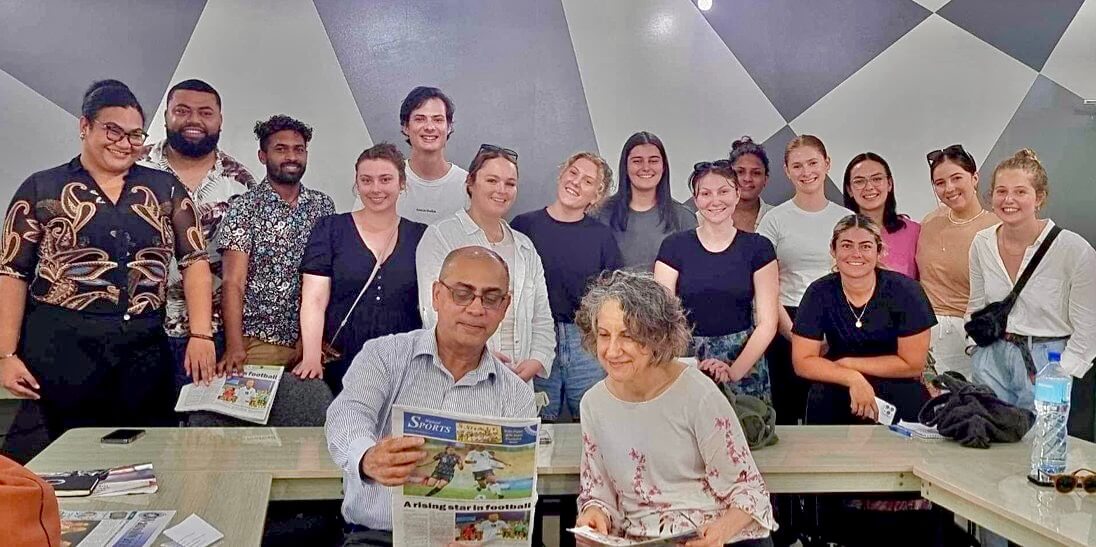Related News

The University of the South Pacific (USP) Journalism Programme was pleased to host journalism students from the Queensland University of Technology this week.
Led by Professor Angela Romano, the students are covering news assignments in Fiji as part of their working trip.
The visitors were given a briefing by USP Journalism teaching staff—Associate Professor in Pacific Journalism and head of the programme, Dr Shailendra Singh, and student training newspaper supervising-editor-in-chief, Monika Singh.
There were lively discussions about the form and state of the media in Fiji and the Pacific, the historical influence of Australian/western media, its pros and cons, and the impact of the emergence of China on the scene.
According to Dr Singh, the small and micro-Pacific media systems were still reeling from revenue loss due to digital disruption and COVID-19.
As elsewhere in the world, the “rivers of gold” (classified advertising revenue) had virtually dried up, and media in the Pacific were apparently struggling like never before.
Dr Singh said this was evident from the reduced size of some newspapers in the Pacific, in both classified and display advertising, which had migrated to social media platforms.
On a positive note, Dr Singh praised the Fiji government for repealing Fiji’s draconian Media Industry Development Act last year and the revival of media self-regulation under the revamped Fiji Media Council.
However, Dr Singh noted there was still some way to go to further improve the media landscape, including a focus on training and development and working conditions.
These are major, longstanding challenges in small and micro-Pacific media systems due to small audiences and marginal profits. This made capital investment and staff development difficult to achieve.
Twelve journalism students from the Queensland University of Technology are in Suva this month on a working trip in which students will engage in meetings, interviews, and production of journalism-style work. They will meet non-governmental organisations that have a strong focus on women/gender in development, democracy, or peace work.
The students will also visit the different media organisations based in Suva and talk to their female journalists about their experiences and their stories.
The USP Journalism programme started in Suva in 1988, and it has produced more than 300 graduates serving the Pacific and beyond in various media and communication roles.
The programme has forged partnerships with leading media players in the Pacific, and its graduates are employed in the fields of journalism, public relations and government/non-governmental organisation communication.